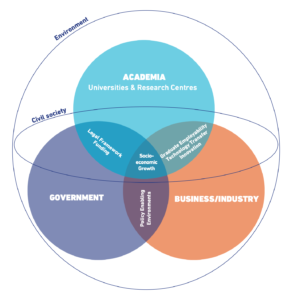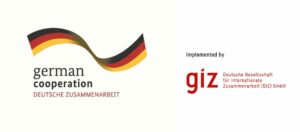
UfM online training “From Knowledge Exchange to Open Innovation – The Jordanian Case”
27 and 29 September 2021. Never has it been so clearer that our Mediterranean societies depend on technological, scientific, and social innovation to address current and future challenges and that the solutions will result from building bridges across disciplines, institutions, cultures, and countries. With the growing demand for innovation, academia is confronted with expectations and claims that position them as a central player of the Triple Helix Model of Innovation. This new and challenging role not only calls for research institutions to be closely interlinked with its industry partners, but also requires them to become embedded in the regional and national ecosystem, amidst the many different actors that range from business and policymakers to civil society organisations and investors.
This action is part of a series of activities promoted by UfM and the pilot training “From Knowledge Exchange to Open Innovation” will focus on the national example of Jordan with the cooperation of the Jordanian Higher Council for Science and Technology (HCST).
Dates
The training will have two live online class sessions to be held on:
● 27 September 2021 from 12:00 to 14:00 hrs EEST
● 29 September 2021 from 12:00 to 14:00 hrs EEST
Working language
English (with live interpretation in Arabic)
Participants
Senior and mid-career staff from universities, research centres, industry, ministries, business accelerators, and other organisations interested in deepening their knowledge about academia-industry collaborative partnerships. The number of participants is limited to 60.

Background information
This training is part of the UfM initiative to Reinforce the Innovation-Employability Nexus in the Mediterranean, targeting universities, research centres, policymakers, industry, and intermediary institutions to collaborate in addressing the unemployment of highly qualified graduates. It further supports UfM’s objective to establish a Community of Practice, bringing together experts and practitioners from public authorities, social partners, and civil society organisations, to discuss, assess, and disseminate experience and good practices covering the priorities set forth by the Ministries centred around youth employment. This training is implemented by Paeradigms and supported by GIZ on behalf of the Federal Ministry for Economic Cooperation and Development of Germany (BMZ).
This initiative contributes to the UfM Ministerial Declaration on Employment and Labour (2019) and the EuroMed Valletta Declaration on Research and Innovation (2017).
For questions, kindly refer to education@ufmsecretariat.org


